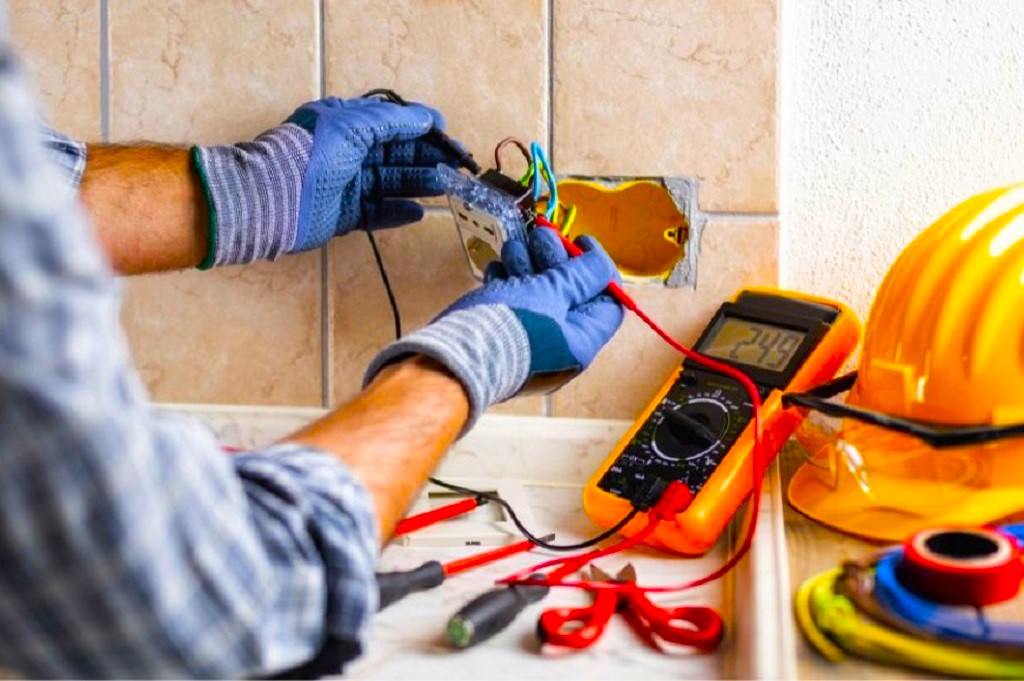How to Ensure Electrical Safety in Your Home

Key Takeaways
- Understanding the basics of electrical safety can prevent accidents and ensure a safe living environment.
- It is vital to regularly maintain and inspect electrical systems in your home.
- Consider hiring a professional electrician for complex electrical jobs to avoid potential hazards.
- Investing in modern electrical devices can enhance the safety and efficiency of your home.
The Importance of Electrical Safety
Electrical safety is a cornerstone of maintaining a secure and hazard-free home environment. Annually, electrical mishaps result in numerous accidents that can escalate to fires, severe injuries, and, in extreme cases, fatalities. To prevent accidents and other safety hazards, it is best to leave the job to an electrician or electrical contractor.
The Electrical Safety Foundation International notes that basic precautionary measures can significantly reduce these risks. Homeowners can avert many common dangers associated with electrical mishaps by understanding the core principles of electrical safety, such as ensuring circuits are not overloaded and keeping electrical systems well-maintained. The peace of mind that comes from adhering to these principles not only protects your home but also ensures the well-being of everyone in it.
Common Household Electrical Hazards
Electrical hazards are surprisingly common in many homes and can present significant risks if not addressed. Typical hazards include faulty wiring, overloaded circuits, and outdated appliances. These issues often linger unnoticed, making them all the more dangerous. For instance, frayed wires, inexplicable power outages, or flickering lights should not be ignored as they may indicate more significant underlying problems. Identifying these signs early is crucial. Regular vigilance and prompt action toward resolving such hazards can prevent in-home accidents and protect your property from associated damage, ultimately saving both time and resources.
Regular Maintenance and Inspection
The cornerstone of preserving electrical safety lies in regular maintenance and thorough inspections of your home’s electrical systems. It is strongly advised that homeowners hire a certified electrician to perform an annual inspection of the outlets, circuit breakers, wiring, and switches on their property. These inspections are instrumental in identifying emerging potential hazards and ensuring they are addressed before escalating into more severe issues. Regular maintenance improves the general dependability and efficiency of your home’s electrical systems while guaranteeing adherence to regional safety regulations.
DIY Tips for Basic Electrical Safety
While engaging professionals is imperative for complicated electrical work, homeowners can take several effective actions to maintain electrical safety. Here’s how you can contribute to a safe electrical environment in your home:
- Avoid Overloading Outlets: Ensure that no single outlet is burdened with multiple high-wattage devices.
- Adhere to Manufacturer Instructions: Always use appliances according to their specific guidelines to reduce risk.
- Replace Damaged Cords: Immediately replace any cords showing signs of wear, such as fraying, to prevent electrical shocks or fires.
- Install Childproof Outlet Covers: If there are young children at home, safety covers on all accessible outlets can protect curious fingers from the risk of injury.
When to Call a Professional Electrician
While minor electrical tasks are manageable by most homeowners, more complex jobs should unequivocally be entrusted to professionals. The installation of new wiring, service panel upgrades, and fixing extensive system failures fall under this category, requiring specialized expertise. According to CNET, employing a certified electrician for these tasks not only reduces the likelihood of errors or accidents but also ensures that work is performed to stringent safety standards. Professional intervention guarantees compliance with regulations, offering peace of mind.
Investing in Modern Electrical Devices
Advancements in technology present exciting opportunities to bolster electrical safety while optimizing your home’s energy efficiency. Modern smart home devices, such as advanced surge protectors and GFCI (Ground Fault Circuit Interrupter) outlets, are equipped to prevent electrical shocks and manage power surges efficiently. Upgrading your home with these devices not only boosts safety but can also yield significant savings on energy bills in the long term. Embracing these innovations positions your home at the forefront of safety and efficiency.
Understanding Electrical Codes and Regulations
For homeowners, a comprehensive understanding of electrical codes and regulations is essential when undertaking any electrical work. These codes are instrumental in ensuring that all electrical systems are safe, effective, and legal. Familiarity with local codes informs proper installation and maintenance practices, reducing risks associated with non-compliance. Moreover, this knowledge aids in better communication with professionals, ensuring that all involved parties are aligned and maintain high safety standards.
Creating an Electrical Safety Plan
Implementing a detailed electrical safety plan is vital for the continued security of your home. This plan should cover all aspects of safety, from routine checks and maintenance schedules to emergency procedures for electrical mishaps. Having a plan accessible to all household members ensures everyone is informed and prepared in case of emergencies. Regularly revisiting and updating the plan as new appliances are introduced and systems are upgraded is crucial to maintaining an effective and responsive safety strategy.
Image Source:
